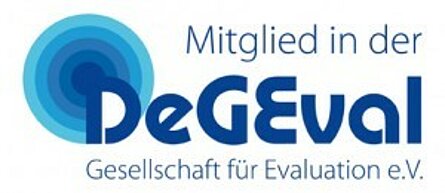Context clarification
This can be quickly determined by asking a few questions such as the following:
- Is the evaluation mandatory or is it based on a strategic decision within the organisation?
- Have subsequent users of the evaluation results been able to communicate their needs so far?
- Has the "end result" of the process been well thought out and have the description and evaluation techniques to be used been recorded?
Communicative and participative
We are pleased to have the opportunity to coordinate closely with clients and project managers right from the start. We will gladly draw up detailed concepts that precisely describe each milestone of the evaluation process. Feedback from various stakeholders quickly helps develop a tailor-made process, whose results are of great benefit to the participants in their respective contexts of action.
Constructive quality management
In particular, formative evaluation processes, which describe strengths and weaknesses and identify potential for development, can quickly become a collection of criticisms without the backing of constructive proposals for solutions. In order to avoid this situation, ISTAT makes specific use of Acceptance Commitment Training (ACT) techniques in its evaluation process.
Qualitative and quantitative
ISTAT prefers to combine quantitative and qualitative methods. The communication of evaluation results is often more effective when both statistical or quantitative and qualitative analyses are available. The latter have a clear advantage when it comes to systematically compiling new inspirations and thought-provoking impulses. The interweaving of qualitative and quantitative analyses also enables a mutual validation of the results (triangulation).
FAQ
Answer: The definition of evaluation is necessarily abstract. It is a systematic description and assessment of a subject of evaluation. The assessment must be carried out professionally and appropriately on the basis of empirical data using scientific methods. This delivers reliable analyses that provide decision-makers with management-relevant knowledge.
Answer: Ultimately, almost anything can become the subject of an evaluation. Below are some examples from our practical experience. Subjects of evaluation can include:
- utility of tools in the context of organisational development
- feasibility and predictable impact of policy measures (laws)
- impact of heterogeneity within a group of people on their performance
- effectiveness of measures for increasing teaching success
- development needs of an organisation (organisational unit)
- development needs of a project/programme
- quality of higher education with respect to the professional success of university graduates
- impact of student mobility abroad on the professional success of university graduates
- strengths and weaknesses of training measures in medicine
- effectiveness of a (new) treatment method
